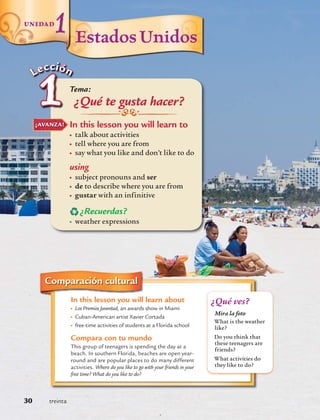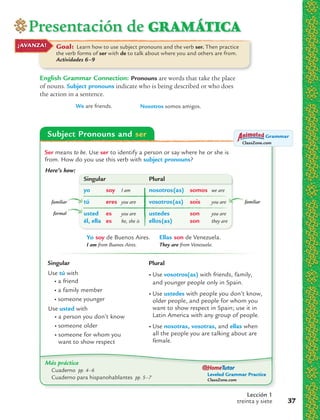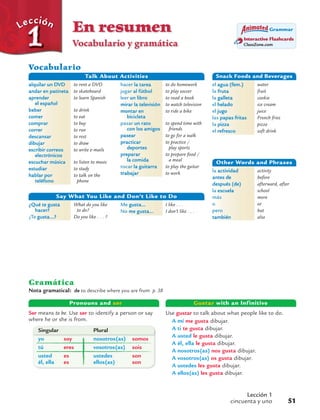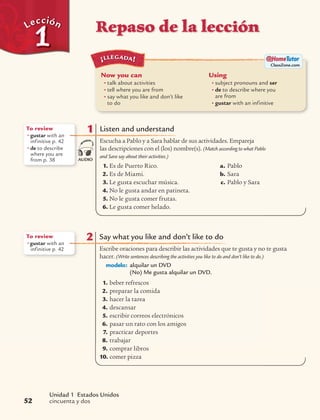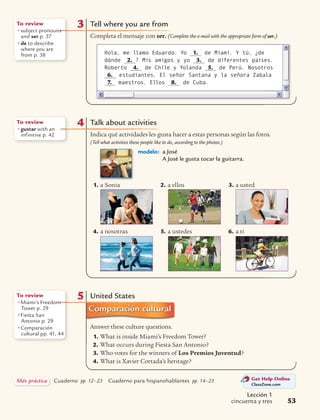Este documento presenta información sobre actividades que les gustan a los estudiantes después de la escuela y durante el fin de semana. Se menciona lo que a Alicia y a su amiga Sandra les gusta hacer en su tiempo libre, como andar en patineta, montar en bicicleta, hacer la tarea, alquilar DVDs y comer pizza. También se proporciona vocabulario sobre actividades de ocio.
